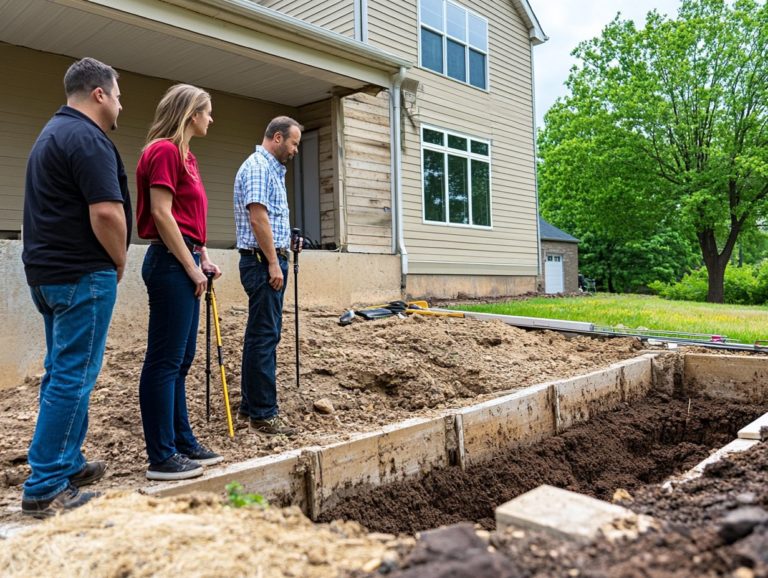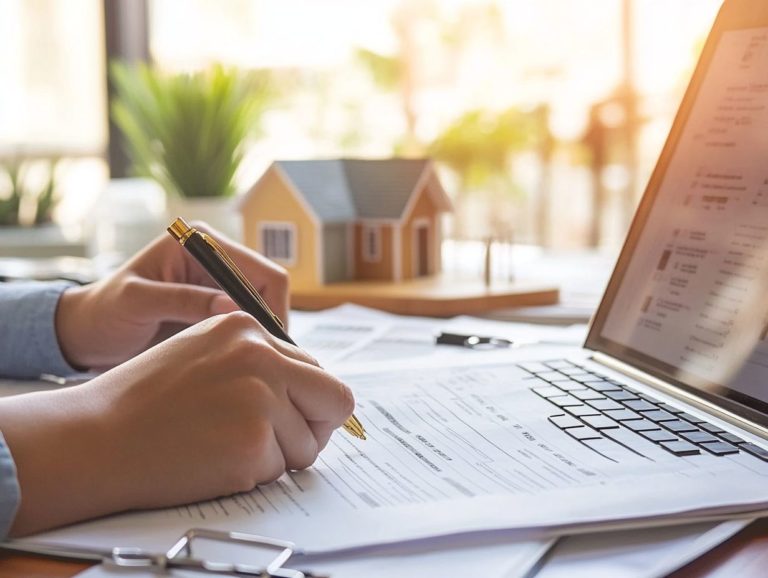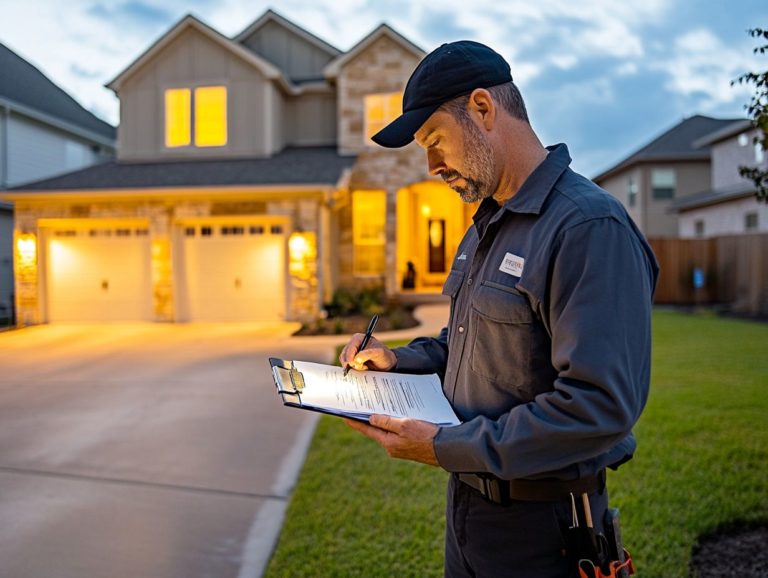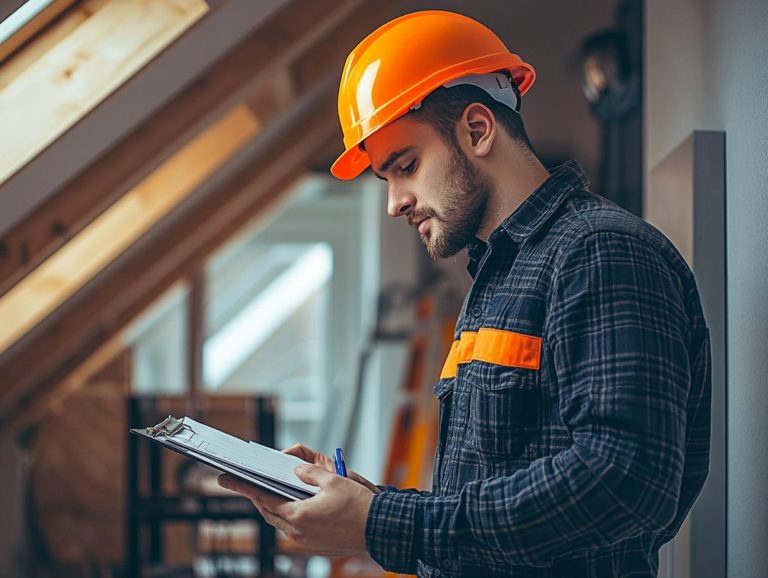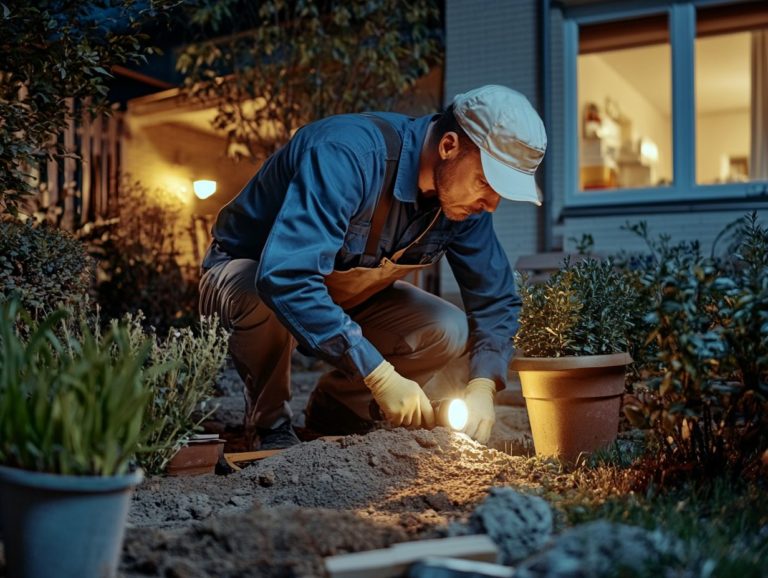Home Inspection Tips for Older Homes
Owning an older home can be a rewarding experience, rich with character and history. However, it also presents unique challenges that demand your careful attention.
From structural issues to health and safety hazards, understanding these concerns is essential for homeowners.
This article serves as your guide to the importance of home inspections, what you can expect, and how to prepare. It highlights key areas to focus on during the inspection.
You ll discover how to effectively address any findings and gain valuable tips for maintaining your cherished abode.
Jump in now to keep your charming home safe and cozy!
Contents
- Key Takeaways:
- Why Home Inspections Matter
- Common Issues Found in Older Homes
- Preparing for a Home Inspection
- What to Look for During the Inspection
- Dealing with Inspection Findings
- Tips for Maintaining an Older Home
- Frequently Asked Questions
- What is considered an older home for the purpose of a home inspection?
- Why is it important to have a home inspection for an older home?
- What are some key areas that should be inspected in an older home?
- Can a home inspection identify potential safety hazards in an older home?
- What should I do if the home inspection reveals major problems in an older home?
- Are there any specific things to look out for during a home inspection of an older home?
Key Takeaways:
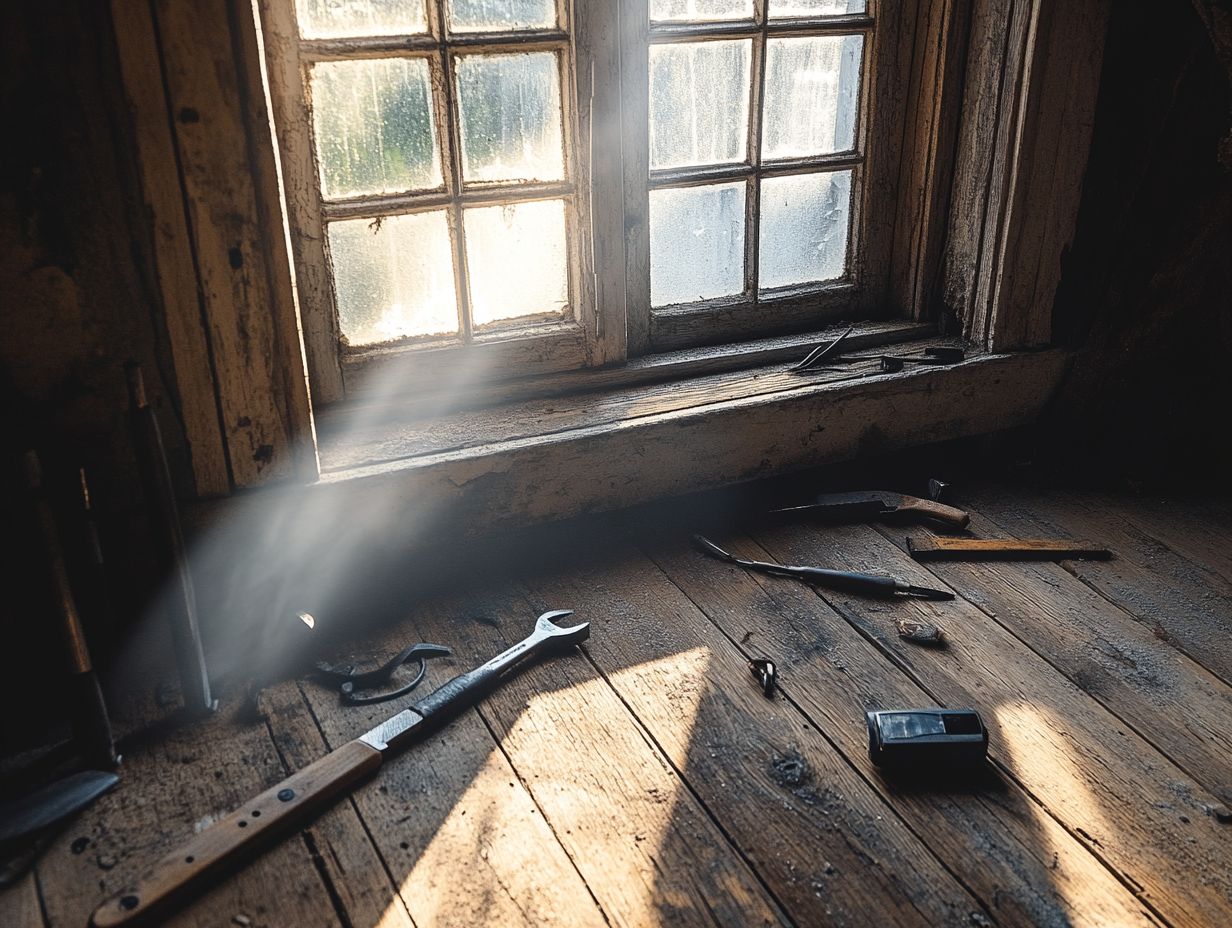
- Regular inspections are crucial for older homes to ensure safety and protect your investment.
- Declutter and clear access to key areas before inspections.
- Attend inspections to ask questions and understand findings.
- Create a maintenance schedule to tackle issues before they become costly.
Why Home Inspections Matter
Understanding the significance of home inspections for older or historic properties is vital for protecting your investment and ensuring the home stands the test of time. To ensure you make the right choice, learn how to choose a home inspector.
A comprehensive home inspection reveals potential issues, such as hidden mold, asbestos, or structural problems. It also plays a critical role in assessing the property’s value and its suitability for renovation or preservation.
With the help of a real estate agent, you can navigate these inspections and make informed decisions about your investment opportunities in today s competitive housing market.
Common Issues Found in Older Homes
Older homes, steeped in historic charm and character, present a distinctive array of challenges that can influence their integrity and safety. Understanding how to choose a home inspector for older homes is crucial for addressing these issues effectively.
As you explore these residential treasures, you may encounter issues related to structural components, plumbing systems, and electrical installations that warrant careful examination. Common concerns like roof leaks, foundation stability, and attic conditions can profoundly affect the overall property condition and any potential renovation plans.
It s crucial to thoroughly understand these factors before making a final decision.
Structural and Mechanical Concerns
When assessing an older home, understanding structural and mechanical concerns is essential for ensuring both safety and longevity. Check key elements like the integrity of structural components, the condition of plumbing systems, and the reliability of electrical systems.
Pay particular attention to the foundation and roof, along with the attic’s condition. These areas can often hide significant issues that impact the home s overall performance. Over time, materials can deteriorate, leading to problems such as mold, water leaks, or insufficient insulation, which can drive up your energy costs.
It’s also important to recognize that outdated systems can pose safety hazards, including electrical fires or plumbing failures. By addressing these matters proactively, you enhance your living experience and significantly boost your property s value.
Thus, collaborating with qualified professionals like structural engineers and certified home inspectors is crucial for a thorough evaluation. This ensures you are well-informed about any necessary repairs or upgrades to maintain or enhance your investment.
Health and Safety Hazards
Health and safety hazards in older homes can pose significant risks to you as an occupant, making awareness essential if you’re considering a purchase.
Common issues like hidden mold, asbestos, and dangerous lead paint can greatly impact your health, especially in vintage homes where these materials were more prevalent.
Identifying these hazards during a home inspection is crucial for ensuring a safe living environment and complying with local regulations.
One often-overlooked issue is hidden mold, which can thrive in damp areas and may lead to respiratory problems if left unchecked. Asbestos often found in insulation and flooring materials poses severe health risks if its fibers are disturbed, increasing the risk of conditions like mesothelioma.
The presence of lead paint, prevalent in homes built before the 1978 ban, can adversely affect children’s cognitive development.
Getting professionals for thorough inspections is a must for your safety! They can identify these dangers and recommend appropriate ways to fix the problems, such as encapsulation, removal, or installation of air filtration systems, to help you create a safer living space.
Preparing for a Home Inspection
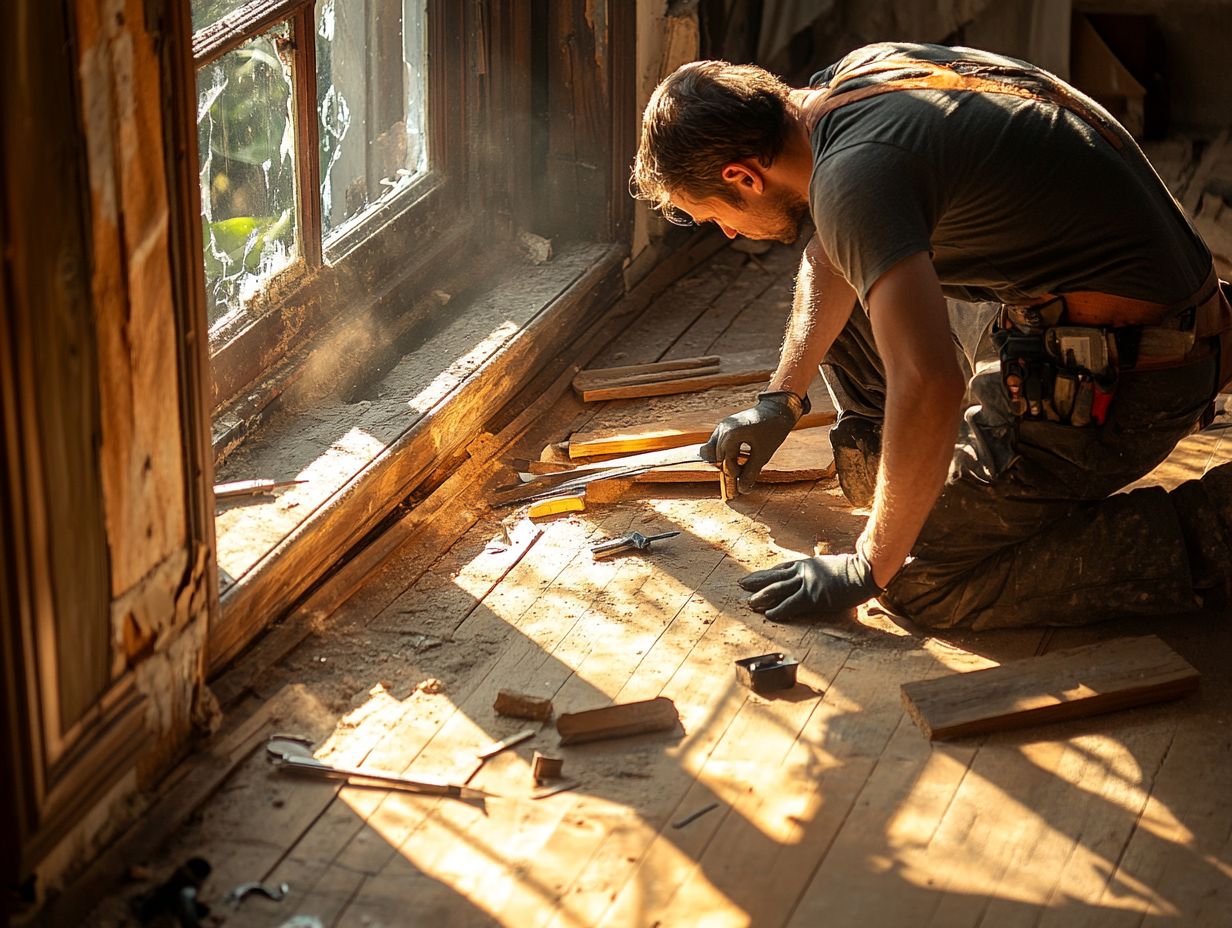
Preparing for a home inspection is an essential step in your buying journey, particularly when considering older or historic homes. It lays the groundwork for an informed purchasing decision.
You should familiarize yourself with what to expect during the inspection process, focusing on crucial areas to evaluate, such as hidden mold, plumbing systems, and the potential presence of asbestos.
Partnering with a seasoned real estate agent can offer you invaluable insights and ensure that the inspection report addresses all significant aspects of the property, including energy efficiency and any potential repairs.
What to Expect and How to Prepare
During a home inspection, you can expect a detailed evaluation of various systems and structures within the property, conducted by a skilled home inspector.
Preparation should include gathering relevant documents and being present during the inspection. This allows you to ask questions and gain insights directly from the inspector, facilitating a clearer understanding of any potential issues.
Here are some important documents to bring:
- The purchase agreement
- Previous inspection reports
- Any warranties related to appliances or systems
Consider asking key questions about the age of major systems, any history of repairs, and recommended maintenance practices.
Common inspection areas typically include:
- Roofing
- HVAC systems (heating, ventilation, and air conditioning)
- Foundation integrity
These areas are all vital for assessing the overall condition of the property. Once you receive the inspection report, take the time to interpret the findings carefully prioritizing which issues require immediate attention versus those that can be addressed later.
This approach will help you make an informed decision as you move forward.
What to Look for During the Inspection
Understanding what to evaluate during a home inspection can profoundly influence your decision-making process, particularly when considering older homes.
It’s essential to focus on key areas such as the condition of plumbing and electrical systems, along with the structural components. Pay special attention to potential roof leaks and assess the integrity of the foundation.
By being meticulous about these crucial elements, you can uncover potential costly repairs and gain a clearer picture of the property s overall condition.
Being informed empowers you to make better choices!
Schedule your home inspection today for peace of mind!
Key Areas to Pay Attention to
Key areas that require your careful attention during a home inspection include the water pipes in your home, electrical systems, and the parts that hold the house together. These elements are crucial for ensuring the home s functionality and safety.
Look out for roof leaks, foundation integrity, and attic issues. These can unveil significant hidden problems that might not be immediately visible but could lead to costly repairs later on.
A well-functioning plumbing system prevents leaks and water damage. It is vital to ensure that electrical systems meet safety codes to avoid hazards like fires or electrocution.
Evaluate structural components, including beams and walls, for signs of wear or damage that could compromise the home’s stability. Roof leaks lead to water damage and mold growth, posing health risks. Foundation cracks may indicate serious issues lurking beneath the surface.
Don t overlook attics; they can conceal insulation problems that affect your energy efficiency. By engaging professionals for thorough evaluations in these areas, you can ensure that concerning findings are promptly addressed. This safeguards both the longevity of the home and the well-being of its inhabitants.
Dealing with Inspection Findings
Dive into the inspection report to make smart decisions about your potential investment.
Addressing the issues identified in the report can involve several strategic options. You could negotiate repairs with the seller, adjust closing costs, or even seek further evaluations from specialists.
Engaging with an insurance agent can offer valuable insights into how certain findings might impact your insurance policies and coverage options.
Options for Addressing Issues
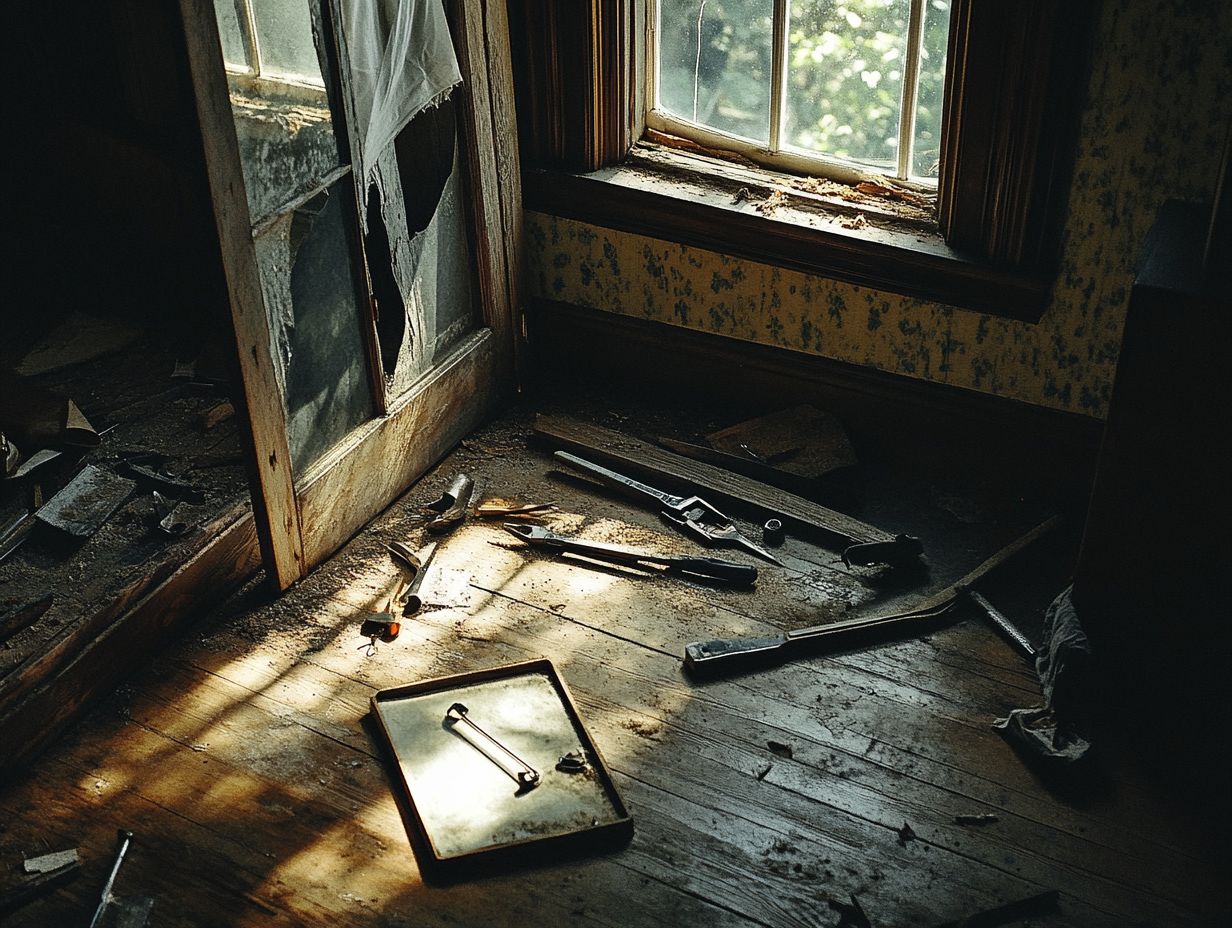
When you encounter issues from the inspection report, consider a range of options to address these concerns, whether negotiating with the seller or planning for home repairs.
Adjusting closing costs to accommodate repair expenses can serve as a practical solution while preserving the integrity of your purchase. Involving a real estate agent is crucial for navigating these discussions, ensuring a satisfactory outcome for both parties.
You might request that the seller make specific repairs before closing. This ensures that the home is in optimal condition when the ownership transfers. Alternatively, you can ask for seller concessions, where the seller agrees to cover a portion of your closing costs, balancing the financial impact of any necessary repairs.
A skilled real estate agent can play a pivotal role in presenting these options with finesse. They articulate your needs while fostering positive communication between both parties. Their expertise can be invaluable in achieving a fair resolution that respects your concerns and addresses the seller’s responsibilities.
Tips for Maintaining an Older Home
Maintaining an older home demands a thoughtful strategy to guarantee its longevity while preserving its historic charm. Establish a meticulous maintenance schedule to keep everything in check.
Implement preventive measures such as routine inspections of plumbing and electrical systems, alongside diligent pest control. These practices allow you to spot potential issues before they blossom into costly repairs.
Emphasizing energy efficiency in your maintenance practices not only elevates comfort but also paves the way for significant long-term savings.
Contact a real estate agent today to discuss your options!
Preventive Measures and Maintenance Schedule
Implementing a structured maintenance schedule and preventive measures is essential for preserving your older home’s integrity. This approach also boosts energy efficiency.
Regular inspections help identify repairs in key areas like plumbing, roof integrity, and pest control. Staying ahead of these issues saves you from expensive fixes.
Don’t miss these seasonal tasks:
- Gutter cleaning in the fall
- HVAC (heating, ventilation, and air conditioning) servicing in the spring
- Year-round draft checks
Consistent monitoring ensures that minor issues don t turn into costly repairs. This approach helps maintain your property’s overall value.
Energy-efficient upgrades, like programmable thermostats or replacing outdated appliances, enhance comfort and promote sustainability. These improvements make your older home more livable and cost-effective.
Frequently Asked Questions
What is considered an older home for the purpose of a home inspection?
An older home is typically at least 20-30 years old. This can vary depending on location and condition.
Why is it important to have a home inspection for an older home?
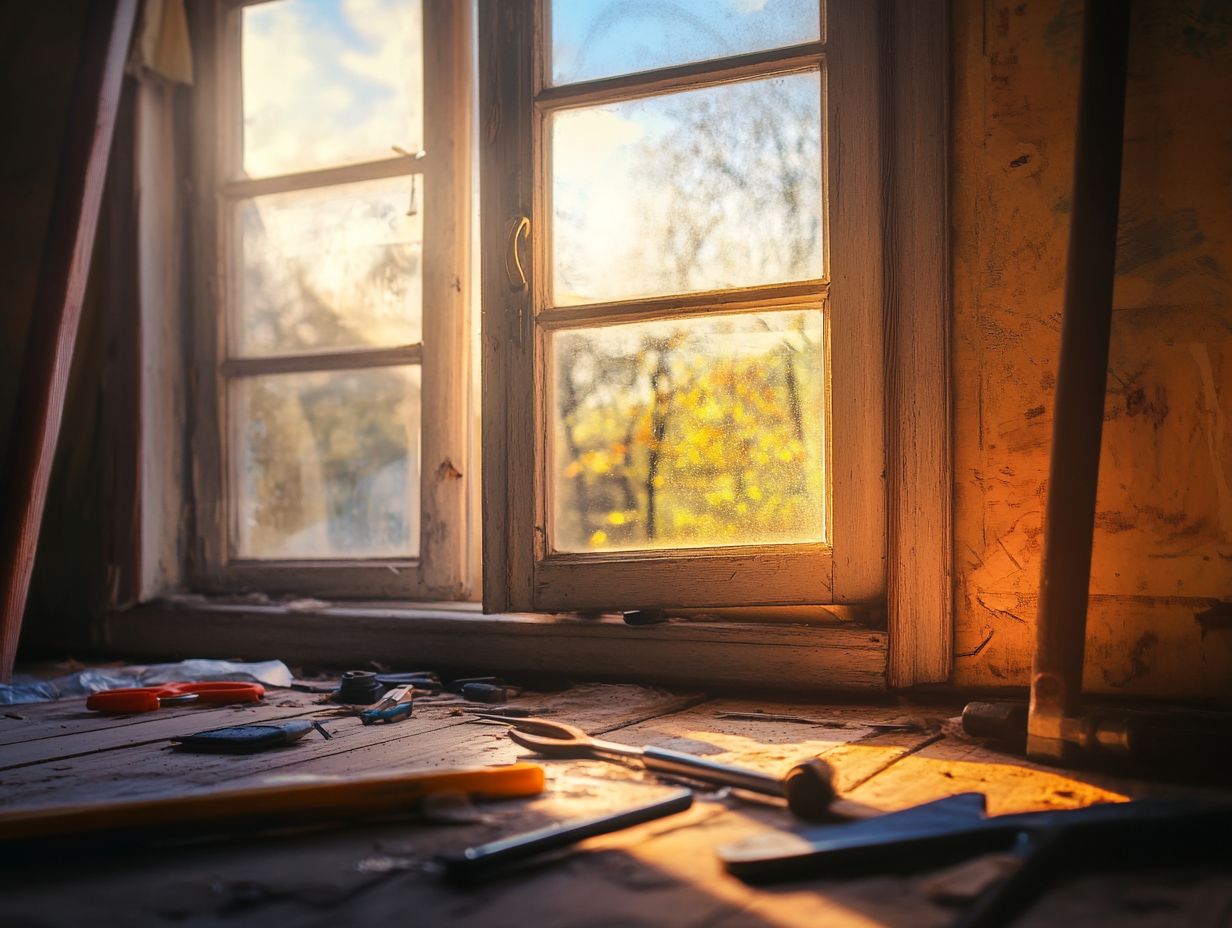
Older homes may have hidden issues, such as outdated electrical or plumbing systems, pest infestations, or structural damage. A home inspection uncovers these problems and helps you make informed decisions.
What are some key areas that should be inspected in an older home?
Important areas include the roof, foundation, electrical and plumbing systems, and the HVAC system, along with any additions or renovations.
Can a home inspection identify potential safety hazards in an older home?
Yes, it can identify safety hazards like mold, asbestos, radon, or lead paint. Addressing these issues is crucial for your family’s safety.
What should I do if the home inspection reveals major problems in an older home?
If major issues arise, consult the seller. You may need to negotiate repairs or a lower price, and consider having a specialist evaluate the problem further.
Are there any specific things to look out for during a home inspection of an older home?
Pay attention to the chimney’s condition, windows, and insulation. These areas can lead to costly repairs if not properly maintained.

